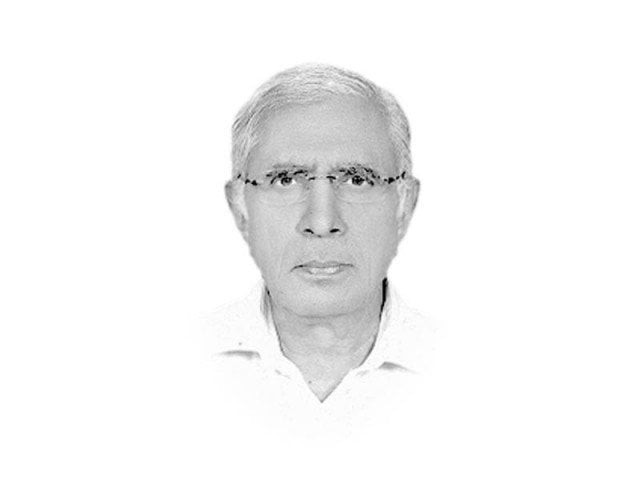Choosing between ‘bad’ and ‘worse’
It has become increasingly difficult to choose the ‘right’ side to root

M Ziauddi. The writer served as executive editor of The Express Tribune from 2009 to 2014
This journey seems to have brought the country now to a juncture where one more fight to the last seems to be in progress. But this time the fight is not for the life of a former prime minister but for his reputation. And it is not a fight between ‘good’ and ‘evil’ but one between ‘bad’ and ‘worse’. Perhaps it has become increasingly difficult to choose the ‘right’ side to root as both sides are ‘wrong’ differing in the degree of ‘wrongness’.
Therefore, the discerning public is finding it almost impossible to choose either ‘wrong’ or ’worse’ as either way it would mean one is condoning corruption or siding with those who violate the constitution with impunity.
ZAB had fought his battle in the courts reposing full confidence in the superior judiciary and paid the price with his life for discounting completely the immense political power that the extra-constitutional forces wield in this country.
That is why perhaps Nawaz seems to have decided to fight his battle out in the open in the political arena-- also because his case is different from that of ZAB’s -- rather than in the confines of the courts and let extra-constitutional forces manoeuvre his ouster from politics for good by working clandestinely on the superior judiciary from behind the scene.
Up to a point Nawaz‘s strategy seemed like winning hands down. He was indeed on a roll; mobilising his party in Punjab into a formidable political force, helped also to a large extent by the fact that his party, the PML-N was still in power at the centre as well as in the largest province of the country. But then he was stopped in his tracks when the PML-N lost the election for the office of the Senate chairman despite being the single largest party in the upper house.
Many had expected the PML-N, mostly made up of electables to disintegrate with Nawaz’s disqualification. This did not happen as he fought back using the advantage of his party being in the government plus the vested political interest that his family had created among the Punjab voters over the last decade of its unbroken rule.
Given the setback that he suffered in the Senate elections as well as the party defections that followed it immediately, and that his party’s governments at the centre and the Punjab are only about six weeks away from completing their tenures Nawaz’s fate seems to have been cooked. Those who have been witnesses to such episodes in the past do not believe his political career would survive beyond August.
However, going by the way he has been pushing back since his disqualification he seems, at this point in time, to be slightly down but not completely out. And in case he keeps fighting as relentlessly as he has been all these months since July 2017, the PML-N is likely to continue to remain a political force in the country even after the elections.
And going by the recent political performance of most of the other contending political parties including PPP and PTI none seems capable of stopping the PML-N from becoming at least the single largest party both in the National and Punjab assemblies.
However, the PML-N is likely to be denied the top offices both at the centre and Punjab by the no- more -unlikely coalition of PPP and PTI which like it did in the Senate elections is likely to facilitate minority party candidates to win the offices of the prime minister and Punjab’s chief minister. This is one of the many alternative post- election scenarios but none with the PML-N in the saddle.
The writer served as executive editor of The Express Tribune from 2009 to 2014















COMMENTS
Comments are moderated and generally will be posted if they are on-topic and not abusive.
For more information, please see our Comments FAQ